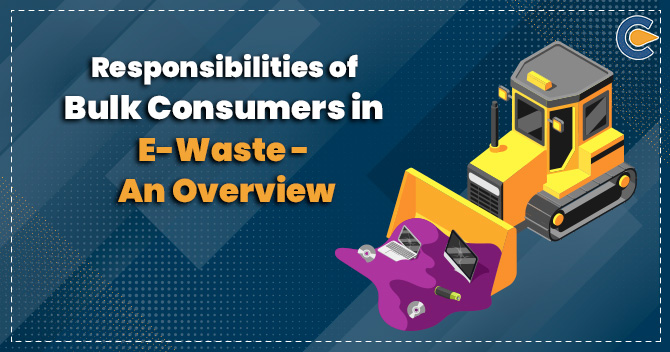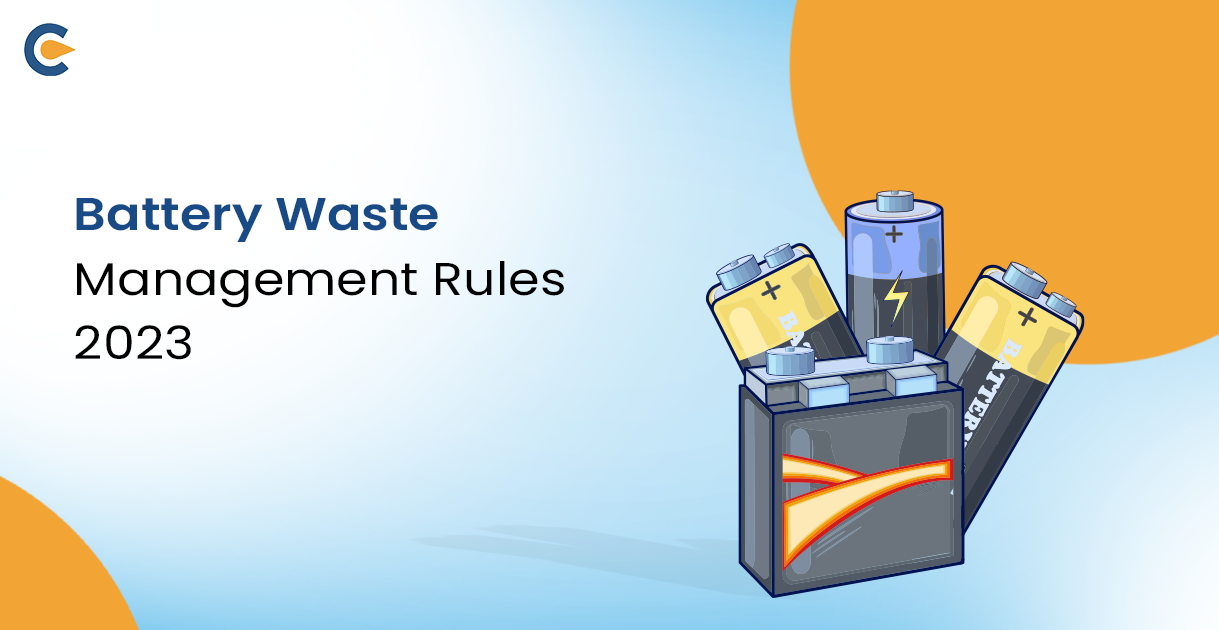On June 10, 2015, the MoEF& CC or the Ministry of Environment, Forest and Climate Change vided number G.S.R. 472(E), published the draft E-Waste (Management) Rules, 2015 in the Gazette of India & after duly considering the objections & suggestions received from the public concerning the said draft rules, the Central Government of Indian in the exercise of the powers bestowed by Section 6, 8 & 25 of the Environment (Protection) Act, 1986 (26 of 1986) and in supersession of the E-Waste (Management & Handling) Rules 20122 published the E-Waste (Management) Rules, 2016. The Rules have been notified with the purpose to ensure proper disposal, handling, and environmentally sound management of e-waste. In this write-up, we will discuss the responsibilities of Bulk Consumers in e-waste.
Changes in Rules 2016 for Bulk Consumers in e-waste
Before we discuss the responsibilities of Bulk Consumers in e-waste, let’s discuss some changes in Rules 2016 for Bulk Consumers in e-waste.
- The application of Rule, 2016 also includes collection centres, dealers, refurbishers, and manufacturers. Moreover, the scope of products or activities is also increased to cover the parts, spares, components, and consumables of electrical & electronic equipment specified in Schedule I Rules, 2016.
- The meaning of bulk consumer is broadened to include public companies registered under the Companies Act, 2013 and the Factories Act, 1948[1] and health care facilities with an annual turnover of more than Rs. 1 cr or have more than 20 employees [Rule 3(c)].
- The Rules 2016 have added some new concepts, which are mentioned below:
- Dealer means any person or firm that buys or receives electrical & electronic equipment as recorded in Schedule I of Rules, 2016 & their components or parts or spares or consumables from producers for sale.
- E-retailer means a person or company or business entity that uses an electronic network like telephone, internet etc. to sell its products.
- Refurbishment means repairing used electronic & electrical equipment as listed in Schedule I of Rules for extending its working life for its initially intended use & selling the same in the market/returning to the owner [Rule 3(ff)].
- Channelisation means to direct the movement pat of e-waste for collection onwards to a certified recycler/dismantler. In the case of fluorescent & other mercury, including lamps, where recyclers are not available, that means movement path from collection centre to TSDF [Rule 3(i)].
- The scheme of deposit fund means a scheme whereby the producer charges an extra amount as a deposit during the sale of electrical & electronic equipment and returns it to the customers along with interest when, at the end-of-life of the electronic & electrical equipment, such equipment is returned [Rule 3(k)]. This scheme is optional for the consumers.
- The definition of e-waste has been extended to also include electronic & electrical equipment discarded as waste by bulk consumers, whereas earlier, the definition only covered such waste which was produced as rejects in the repairing & manufacturing process [Rule 3(r)].
- The responsibilities of bulk consumers in E-waste are enhanced to include two new compliances in addition to what was provided in Rules 2011.
- Bulk consumers are now needed to follow the procedural necessities for the storage of e-waste (Rule 15).
- Moreover, Schedule I is revised to comprise Fluorescent & other Mercury-containing lamps under the category of consumer electrical & electronics.
Responsibilities of Bulk Consumers in e-waste
The Rules lay down that the bulk consumers of electrical & electronic equipment listed in Schedule I of the Rules shall ensure the following:
- That the e-waste generated is channelised via collection centre or dealer of certified producer or dismantler or recycler or through the designated take-back service provider of the producer to certified recycler or dismantler.
- The end-of-life electronic & electrical equipment is not admixed with e-waste including radioactive materials as covered under Atomic energy Act, 1962 & rules made thereunder.
Apart from these, the Rules lay down the following extra responsibilities of Bulk Consumers in e-waste:
- To maintain records of e-waste produced in Form-2 and make such records available for examination by the concerned SPCB or State Pollution Control Board.
- To annual returns in Form-3, the concerned SPCB on or before the 30th day of June following the Financial Year (F.Y) to which that return relates.
Conclusion
Bulk Consumers may store or collect the e-waste for a time period of not more than 180 days & shall maintain a record of sale, transfer, storage, and collection of waste and make these records available for examination. However, the Rules also provide or given that such period of storage of e-waste may be further extended by the concerned SPCB for 365 days in case the waste needs to be specifically stored for the development of a process for its reuse or recycling.
Read our Article:How to start an E-waste Management Business in India?











